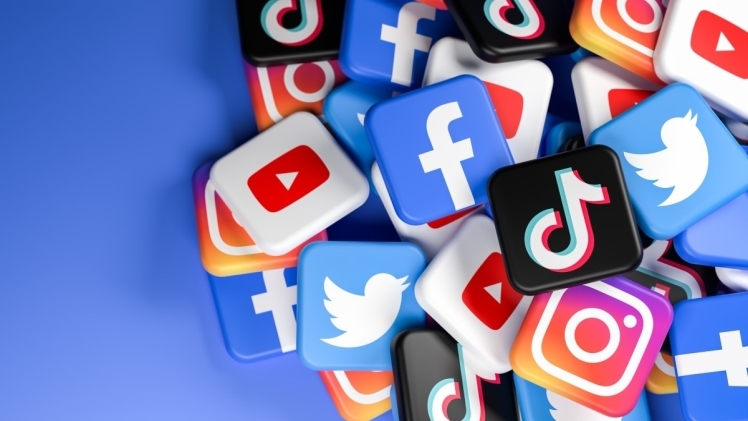Introduction
In the span of just a few decades, social media has evolved from a novel form of online interaction into a global phenomenon that influences nearly every aspect of our lives. It has revolutionized how we connect, communicate, and consume information, making it a driving force in contemporary society. This article explores the impact and evolution of social media, its role in our personal and professional lives, and the challenges it poses.
The Evolution of Social Media
The concept of social media can be traced back to the early days of the internet, with platforms like SixDegrees.com (1997) and Friendster (2002) paving the way for what was to come. However, it was Facebook’s launch in 2004 that marked the beginning of the social media era as we know it today. Subsequently, platforms like Twitter (2006), Instagram (2010), and Snapchat (2011) emerged, each offering its unique form of communication and expression.
As social media platforms proliferated, they underwent significant transformations. They evolved from simple text-based networks into multimedia-rich ecosystems, supporting photos, videos, live streaming, and augmented reality features. Furthermore, social media expanded beyond personal connections to include business, news, activism, and entertainment, shaping diverse digital landscapes.
The Impact of Social Media
Social media has had a profound impact on society, influencing how we interact, share information, and perceive the world:
Global Connectivity: Social media has connected people across the globe, transcending geographical boundaries. It allows us to stay in touch with friends and family, fostering connections that might otherwise wither due to distance.
Information Dissemination: News and information are disseminated at unprecedented speeds on social media. It has become a primary source of news for many, but it has also given rise to issues of misinformation and fake news.
Personal Branding: Social media has enabled individuals to craft and showcase their personal brand. Platforms like LinkedIn are vital for professional networking, while Instagram and YouTube have birthed a new generation of influencers and content creators.
Cultural Influence: Social media shapes cultural trends, from viral challenges and memes to social justice movements like #BlackLivesMatter and #MeToo. It amplifies voices and drives change.
Mental Health: The constant presence of social media can take a toll on mental health. Comparison anxiety, cyberbullying, and the addictive nature of social media are concerns that society grapples with.
Privacy and Security: The vast amount of personal data shared on social media has raised concerns about privacy and data security. Incidents of data breaches and misuse underscore the importance of safeguarding personal information.
Social Media in Personal and Professional Life
Social media has become an integral part of both our personal and professional lives:
Personal Connection: Social media allows us to connect with friends, family, and acquaintances regardless of physical distance. It keeps us informed about their lives, milestones, and updates.
Networking: Platforms like LinkedIn offer professionals a space to network, showcase their skills, and seek job opportunities. It has become a crucial tool for job seekers and recruiters alike.
Education and Learning: Educational institutions and instructors use social media to share resources, facilitate discussions, and connect with students. It has also democratized access to knowledge through online courses and tutorials.
Marketing and Business Growth: Businesses leverage social media for marketing and customer engagement. It provides a cost-effective way to reach a global audience and build brand loyalty.
Entrepreneurship: Many entrepreneurs and small businesses use platforms like Instagram and Facebook to promote their products and services. The ease of setting up online stores has transformed e-commerce.
Challenges and Concerns
While social media has brought significant benefits, it is not without its challenges and concerns:
Misinformation and Fake News: The rapid spread of false information poses a significant threat to society. It can have real-world consequences, such as public health crises and political turmoil.
Privacy Invasion: Social media platforms collect vast amounts of personal data, raising concerns about privacy and data security. Users must be vigilant about what they share and with whom.
Cyberbullying: The anonymity of social media can lead to cyberbullying, harassment, and online abuse. It can have severe emotional and psychological effects on victims.
Mental Health Issues: Excessive use of social media has been linked to mental health issues, including anxiety, depression, and feelings of inadequacy due to social comparison.
Addiction: Social media platforms are designed to be addictive, with features like infinite scrolling and notifications. This can lead to unhealthy usage patterns and screen time.
Conclusion
Social media has undergone a remarkable evolution, transforming the way we connect, communicate, and consume information. Its impact on society is profound, shaping personal relationships, professional networks, and cultural trends. However, it also poses challenges, including the spread of misinformation, privacy concerns, and mental health issues.
As social media continues to evolve, it is essential for individuals to strike a balance between its benefits and potential drawbacks. By using social media mindfully, responsibly, and with a critical eye, we can harness its power to connect, inform, and inspire while mitigating its negative effects on our well-being and society as a whole.

